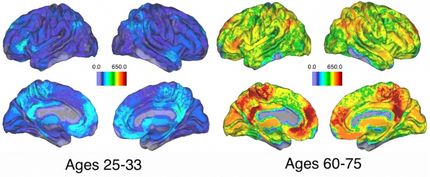Cognitive training can alter the biochemistry of the brain
Advertisement
Researchers at the Swedish medical university Karolinska Institutet have shown for the first time that the active training of the working memory brings about visible changes in the number of dopamine receptors in the human brain. The study, which is published in Science, was conducted with the help of PET scanning and provides deeper insight into the complex interplay between cognition and the brain’s biological structure.
“Brain biochemistry doesn’t just underpin our mental activity; our mental activity and thinking process can also affect the biochemistry,” says Professor Torkel Klingberg, who led the study. “This hasn’t been demonstrated in humans before, and opens up a floodgate of fascinating questions.”
The neurotransmitter dopamine plays a key part in many of the brain’s functions. Disruptions to the dopamine system can impair working memory, making it more difficult to remember information over a short period of time, such as when problem solving. Impaired working memory has, in its turn, proved to be a contributory factory to cognitive impairments in such disorders as ADHD and schizophrenia.
Professor Klingberg and his colleagues have previously shown that the working memory can be improved with a few weeks’ intensive training. Through a collaborative project conducted under the Stockholm Brain Institute, the researchers have now taken a step further and monitored the brain using Positron Emission Tomography (PET scans), and have confirmed that intensive brain training leads to a change in the number of dopamine D1 receptors in the cortex. Their results can be of significance to the development of new treatments for patients with cognitive impairments, such as those related to ADHD, stroke, chronic fatigue syndrome and ageing.
“Changes in the number of dopamine receptors in a person doesn’t give us the key to poor memory,” says Professor Lars Farde, one of the researchers who took part in the study. “We also have to ask if the differences could have been caused by a lack of memory training or other environmental factors. Maybe we’ll be able to find new, more effective treatments that combine medication and cognitive training, in which case we’re in extremely interesting territory.”
Original publication: Fiona McNab, Andrea Varrone, Lars Farde, Aurelija Jucaite, Paulina Bystritsky, Hans Forssberg and Torkel Klingberg; "Changes in Cortical Dopamine D1 Receptor Binding Associated with Cognitive Training”, Science 2009.




















































